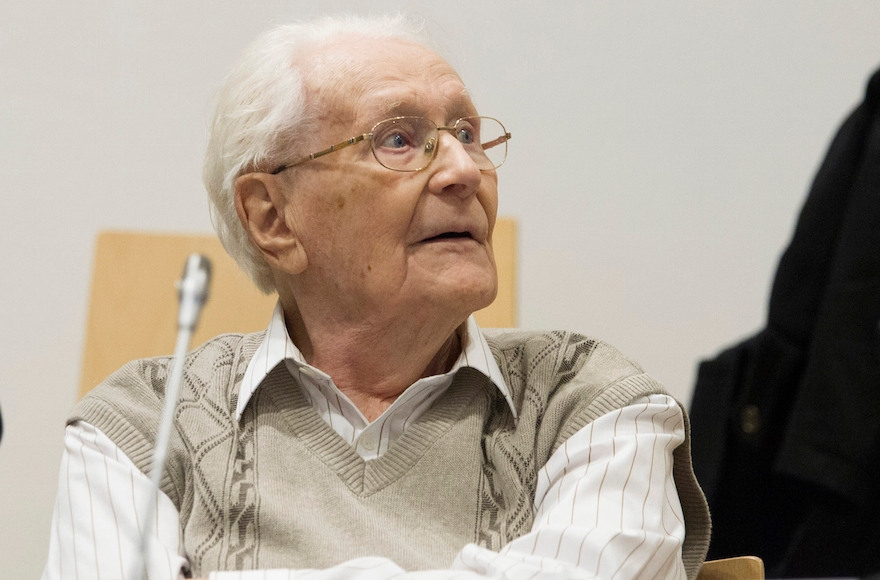(JTA) — Oskar Groening, the former Auschwitz guard convicted in his 90s for his role in the murder of 300,000 Hungarian Jews at the concentration camp, has died in Germany.
Reports of his death surfaced on Monday, though the German publication der Spiegel reported that he died Friday and authorities had not yet received his death certificate. He was 96.
Groening, who was sentenced to four years in prison for his crimes, died without spending a day serving his term. The man known as the “Bookkeeper of Auschwitz” was convicted in July 2015.
He had been expected to enter prison at the end of January, but the continued wrangling over the state of his health kept him from beginning to serve his sentence.
“The death of Oskar Groening just before he was scheduled to begin to serve his sentence in a German jail following his conviction three years ago for accessory to murder is quite unfortunate, at least on a symbolic level,” Efraim Zuroff, director of the Israel office of the Simon Wiesenthal Center and an expert in Nazi war criminals, said in a statement issued Monday.
Zuroff pointed out that two other Nazi war criminals — John Demjanjuk, who was convicted in 2011, and Reinhold Hanning, who was convicted in 2016 — also died while awaiting decisions on their appeals.
“As fate would have it, [Groening] too has now escaped justice, casting a shadow of sorts on the judicial processes,” he said. “Without at least symbolic justice these trials, as important as they are, lose an important part of their significance. Their victims never had any appeals, nor did their tormentors have any mercy, consequently these perpetrators don’t deserve either.”
A clemency plea filed by Groening’s attorney with German prosecutors was rejected in January, and earlier this month he asked the justice minister of Lower Saxony, the northern German state where his 2015 trial took place, to pardon him so that he did not have to go to prison. A federal appeals court had rejected his appeal a year ago.
Groening had admitted to being tasked with gathering the money and valuables found in the baggage of murdered Jews and handing it over to his superiors for transfer to Berlin. He said he had guarded luggage on the Auschwitz arrival and selection ramp two or three times in the summer of 1944.
During the trial, Groening asked for forgiveness while acknowledging that only the courts could decide when it came to criminal guilt.
JTA has documented Jewish history in real-time for over a century. Keep our journalism strong by joining us in supporting independent, award-winning reporting.






